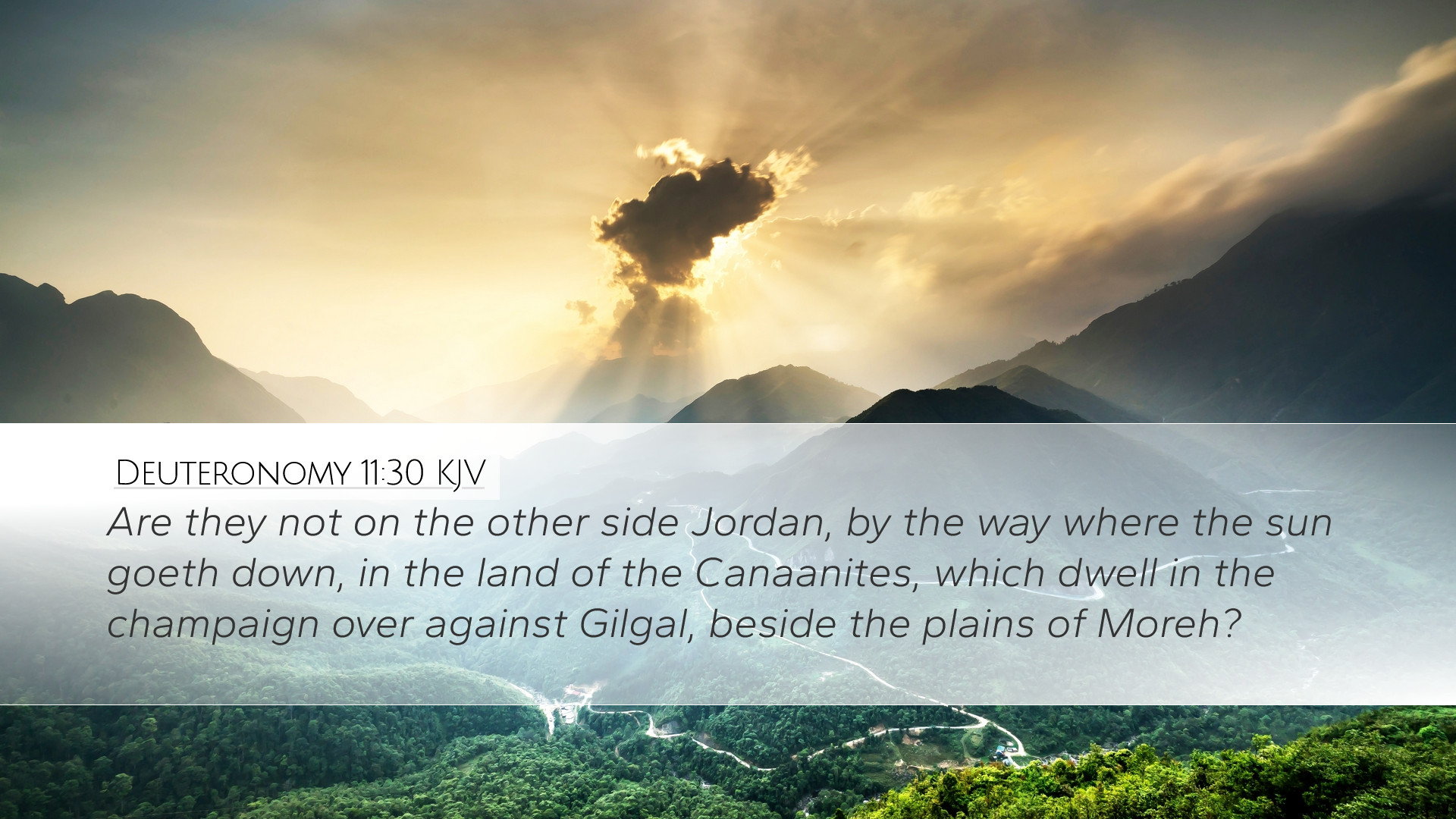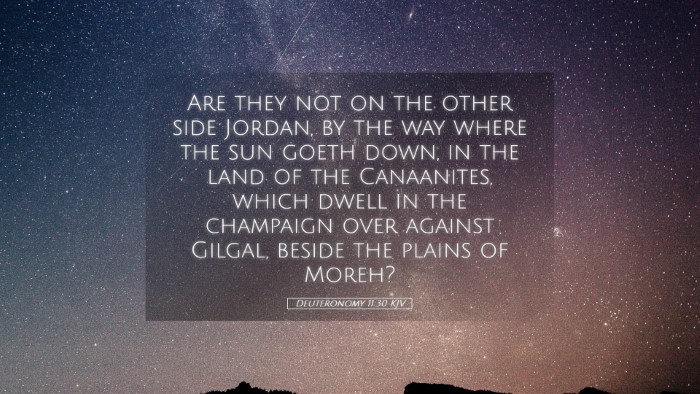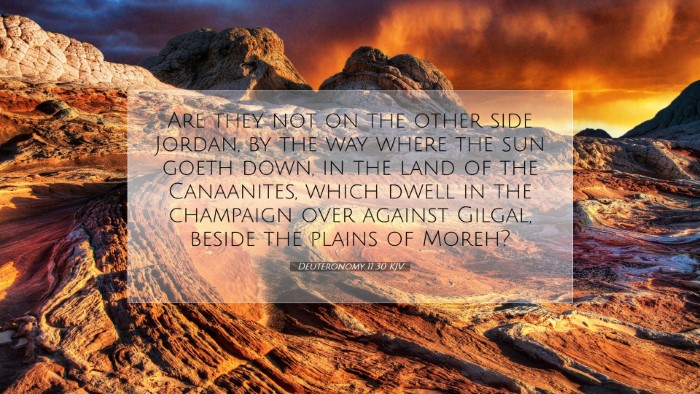Commentary on Deuteronomy 11:30
Verse Text: “Are they not on the other side Jordan, by the way where the sun goeth down, in the land of the Canaanites, which dwell in the champaign over against Gilgal?”
Introduction
This verse occurs within the broader context of the book of Deuteronomy, where Moses is delivering his final words to the children of Israel before they enter the Promised Land. It serves as a geographical reference that situates the people and outlines the land that they are about to inherit. The implications of this passage extend beyond mere geography; they reflect deep theological themes pertinent to the identity of Israel and the faithfulness of God.
Geographical Significance
According to Matthew Henry, this verse emphasizes the land that lies across the Jordan River, specifically mentioning its relation to the Canaanites and the geographical traits of the region. Moses describes not only the land but its approximate location to inspire the Israelites with the assurance of God’s promise. The mention of “the way where the sun goeth down” serves to visually orient the hearers in a manner that enhances their anticipation as they approach the fulfillment of God’s covenant.
Albert Barnes adds that the specific mention of the Canaanites indicates the presence of pagan people, which raises a dual thematic focus: the challenges of entering a land occupied by those who worship other gods, and the reaffirmation of God’s promise to Israel despite such challenges. The land represents both a physical inheritance and a spiritual battleground where Israel must assert its identity in relation to the neighboring tribes.
Theological Implications
Commentators note that this verse encapsulates key theological motifs: the sovereignty of God, the concept of promised land, and the necessity of faithfulness. Adam Clarke suggests that the mention of “the Canaanites” serves as a reminder of the dangers of idolatry and compromise. The geography serves not just as a physical boundary, but as a reminder of spiritual boundaries that must be guarded.
Faithfulness to God's Command
- Moses’ Leadership: Moses speaks with authority as a leader leading the people not just into a land, but into fulfilling the covenant they have with God.
- Reminder of God’s Promises: The reference to the land appeals to the covenant God made with Abraham, Isaac, and Jacob—emphasizing continuity in God’s redemptive plan.
- Call to Obedience: The geographical detail functions as a dual call for obedience amidst the reality of temptation from neighboring nations.
Historical Context
In examining the historical backdrop of the Israelites' journey, one must consider their vulnerability as a nomadic people about to settle in a land inhabited by challenges to their faith. Matthew Henry comments on how the transition from wandering in the wilderness to establishing a community in Canaan symbolizes a fulfillment of both physical and spiritual liberation. The location referenced in this verse serves as a touchstone for remembering their past and recognizing where they stand in relation to God’s plan.
Albert Barnes points out the significance of Gilgal, a place where later events in Israel's history unfold, including the renewal of the covenant. This soil, then, is not just ground to stand on; it is sacred history being written in the lives of God’s chosen people.
Personal Application for Faithful Living
The critical focus of Deuteronomy is God’s call towards personal and communal faithfulness. Adam Clarke challenges contemporary readers to reflect on their lives in light of God’s promises. This passage invites believers today to examine the “lands” they inhabit—be they cultural, spiritual, or relational—and consider how they can fulfill God’s call amidst influence that may lead them astray.
Reflection Points:
- Vigilance Against Idolatry: Like the Israelites, Christians are to guard against contemporary idols in the form of secularism and materialism.
- Encouragement from God’s Promises: Believers can take reassurance in God’s faithfulness across generations, knowing that what He has promised will come to fruition.
- Commitment to Community: The journey to Canaan reflects a communal undertaking; likewise, the Christian life is strengthened in the context of fellowship and shared faith.
Conclusion
Deuteronomy 11:30 serves not merely as a geographical note, but as an invitation to understand the profound relationship between God, His people, and the land He promises them. The insights gleaned from the commentaries of Matthew Henry, Albert Barnes, and Adam Clarke highlight the multifaceted implications of this text for understanding the nature of God's fidelity and the call to holiness amidst a landscape fraught with challenges. As modern believers look to this passage, they are reminded that the journey into the promises of God is one that requires faith, vigilance, and an unwavering commitment to live according to His Word.


